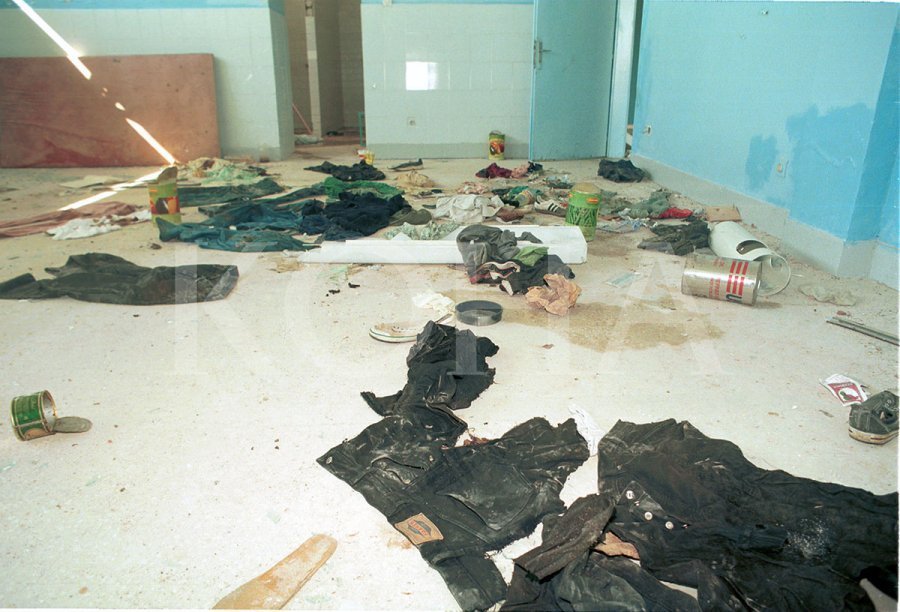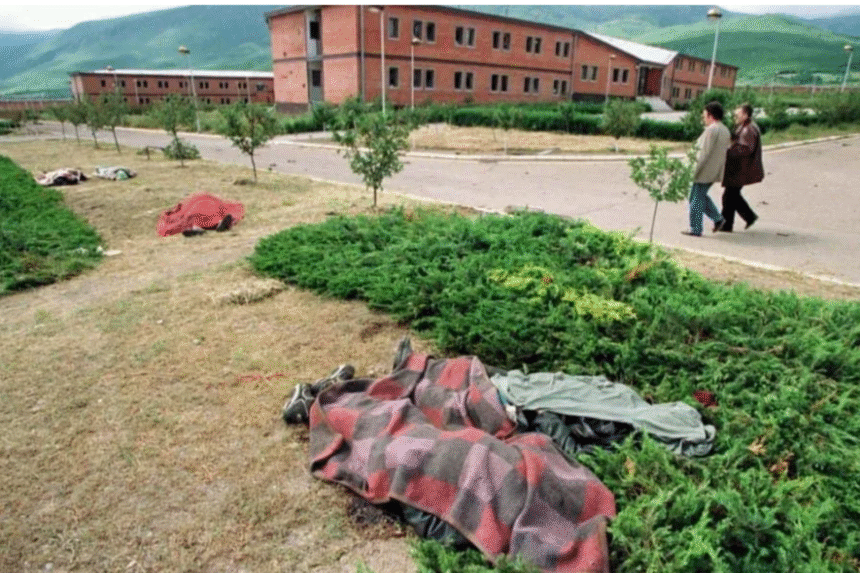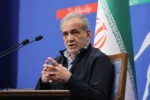Twenty-six years after the Dubrava Massacre, former prisoner Rrahim Aliu from Rrezalla, Skenderaj, says he will never forget the torture he endured in 1999, when Serbian forces killed and massacred 117 Albanian prisoners. At the memorial for the massacre, Acting Prime Minister Albin Kurti himself a former war prisoner called on the Special Prosecution to launch investigations and judicial proceedings related to the events at Dubrava Prison.
Rrahim Aliu was 37 years old when he suffered continuous torture by Serbian forces at Dubrava Prison.
He recalls, with deep emotion, the moments during the massacre when he stood among 98 fellow prisoners gathered by Serbian forces in the prison courtyard, just before they were mercilessly shot at from the guard towers with the clear intent to kill them all.
“Many years have passed, but these memories cannot be forgotten. Just two days before coming here, I was overcome by those memories. We can’t forget them—we remember them, always,” he said Thursday at the 26th anniversary of the Dubrava Massacre.
Now 63, Aliu remembers the horrifying moment when, upon gathering the prisoners in the open yard, the Serbian guards opened fire from the towers leaving dozens dead.
“Most of us were gathered here in this field. They started shooting at us. Some of us managed to escape, running in different directions, but most of those whose names are written here were killed. That watchtower over there this is the infamous place for us survivors,” he recounted.
Aliu says the pain and memories become heavier with each anniversary, especially when he meets the families of those who were killed.
“By God’s mercy, we survived but many were taken from us. The hardest part is seeing the families and children of those who never came back,” he said.
Another survivor, Ylber Topalli, testified that for five consecutive days, prisoners were left without food or medical care.
“There was no food for five days. The prisoners organized among themselves. Even worse, when they were transferred from this prison, the same torture continued no medical treatment, no food—and after two weeks, they were sent to prisons in Serbia,” he said.
Former prisoners, survivors, family members of the victims, and state officials participated in Thursday’s memorial gathering.
Acting Prime Minister Albin Kurti urged the Special Prosecution of Kosovo to initiate thorough investigations and trials.
“What must happen, and what I call for again, is that the Special Prosecution of Kosovo begins investigations into this massacre and initiates judicial processes. And there is no more fitting place to make this call than right here, where we are alive and strong but never forget those who were stronger than us, yet are no longer alive because Serbia’s criminal genocidal hand executed them in this very courtyard,” Kurti stated.
President Vjosa Osmani also commemorated the anniversary, writing on Facebook that Dubrava remains an open wound and undeniable proof of Serbia’s genocidal brutality against Kosovo Albanians.
“They were killed simply for wanting the right to live freely in their own land. Instead of being protected, they became targets of a systematic crime a crime that, 26 years later, still demands justice. Dubrava remains an open wound in our collective memory and undeniable evidence of the genocidal brutality of the Serbian state,” she wrote.
Ramush Haradinaj, leader of the Alliance for the Future of Kosovo (AAK), called the Dubrava Massacre one of the most horrific crimes committed by Serbian forces.
“The Dubrava Massacre revealed the true face of Serbian genocide, with a single aim: to erase Albanian existence through ethnic cleansing. Our path to freedom was long, hard, and filled with sacrifice. The Serbian state still refuses to accept the truth or take responsibility, but we continue the fight for justice. Kosovo does not forget!” he stated on Facebook.
The Dubrava Massacre, which began on May 19 and ended on May 24, 1999, resulted in the deaths of at least 117 Albanian prisoners and the injury of about 200 others. No one has been convicted for this massacre yet.
The Special Prosecution has announced that the trial of Gavrillo Millosavljević accused of abuse and participation in the massacre is nearing its conclusion.
Prosecution spokesperson Arbnora Luta confirmed that active investigations continue against more than 80 suspects involved in the massacre.








